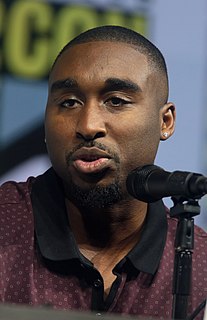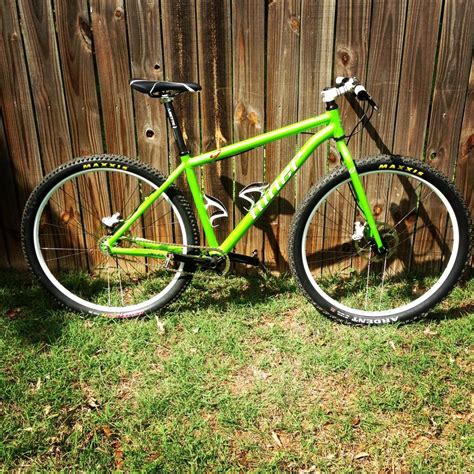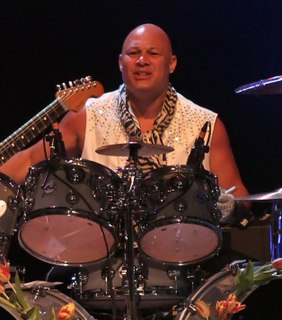A Quote by Zoe Kravitz
I identified with white culture, and I wanted to fit in. I didn't identify with black culture. Like, I didn't like Tyler Perry movies, and I wasn't into hip-hop music. I liked Neil Young.
Related Quotes
This is more in regards to celebrities. What we've got to understand is that we are the influencers of the hip-hop culture, the black culture. We are the way out, you feel what I'm sayin'? As far as who we look to and where we get stuff from - hip-hop culture is influencing the world, really, but especially the black communities.
I am trying to get folks outside the hip-hop culture to understand why, despite the negatives, young people find hope and refuge in hip-hop. I'm hoping that young people immersed in the culture will work harder to capitalize on the possibilities for great social change that hip-hop represents as a national unified cultural youth movement.
White people couldn't do black music back in the day because they weren't funky or bad enough. They weren't from the ghettoes, but hip-hop and R&B changed all of that because white kids want to be down with it. They wanted to learn it so they studied the culture. It's kind of a cool thing because we shouldn't be so separate.
I've been able to be a part of every movement in music over the last several decades. The only one that I haven't been involved in so much is hip-hop, which I chose not to be involved in because it felt like I would be what they called "perpetrating." It felt like hip-hop was so much of its own culture and that I was not part of that culture.
I did not disregard my culture, if I did, it was the white American culture, and I accepted my true culture, when I accepted Mohammed Ali, because this is a black name, Islam is the black man's religion, and so I would like to say, that I would like to clarify that point that I reclaimed my real culture, and that's being a black man and wearing a black name with a black body, and not a white name, so I would never say that I didn't disown my culture.
I always thought that there was something in hip-hop culture that was the misfit of all the musical styles, where they didn't really belong. They're kind of like, 'No, we're a real culture! We're not going anywhere, you can't get rid of us!' I really liked that there was a rebelliousness about it. I connected with that.
I think that hip-hop should be spelled with a capital "H," and as one word. It's the name of our black people culture, and it's the name of our identity and consciousness. I think hip-hop is not a product, but a culture. I think rap is a product, but when hip-hop becomes a product, that's slavery, because you're talking about people's souls. To me, that's the biggest problem.
Socially, hip-hop has done more for racial camaraderie in this country than any one thing. 'Cause guys like me, my kids - everyone under 45 either grew up loving hip-hop or hating hip-hop, but everyone under 45 grew up very aware of hip-hop. So when you're a white kid and you're listening to this music and you're being exposed to it every day on MTV, black people become less frightening. This is just a reality. What hip-hop has done bringing people together is enormous.



































